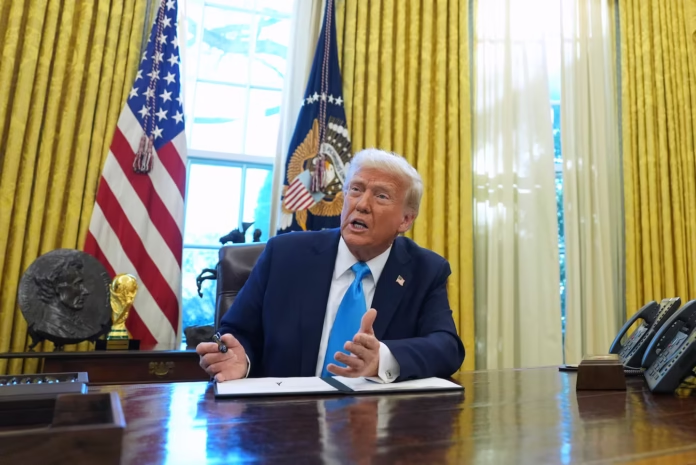The International Criminal Court (ICC) has urged its member states to oppose sanctions imposed by former U.S. President Donald Trump, describing the move as an effort to undermine its judicial independence. The court, based in The Hague, strongly condemned the sanctions and reiterated its commitment to upholding justice for victims of atrocities worldwide.
The White House announced the executive order on Thursday, citing what it called “illegitimate and baseless actions” by the ICC that targeted the United States and its ally, Israel. The order was issued in response to the ICC’s arrest warrant for Israeli Prime Minister Benjamin Netanyahu, which was issued the previous year over alleged war crimes in Gaza.
In a statement, the ICC denounced the U.S. decision, emphasizing that it would continue its judicial work without political influence. The court expressed unwavering support for its personnel and its mission of delivering justice to victims of serious international crimes.
Additionally, the ICC called on its 125 member states, along with civil society and global institutions, to unite in defense of justice and fundamental human rights. The court reaffirmed its role as an independent body dedicated to investigating and prosecuting the most serious crimes under international law, regardless of political pressures.
The sanctions imposed by the Trump administration add to long-standing tensions between the United States and the ICC. The U.S. has historically opposed the court’s jurisdiction over its citizens and has resisted efforts to hold American officials accountable for alleged war crimes. The ICC’s actions regarding Israel further escalated the conflict, with Washington asserting that the court was unfairly targeting its ally.
Despite the sanctions, the ICC remains firm in its mandate to investigate and prosecute crimes such as genocide, war crimes, and crimes against humanity. The court maintains that its work is essential in upholding international justice and ensuring accountability for those responsible for grave human rights violations.
The situation highlights ongoing debates over international justice and the role of global institutions in holding leaders accountable for crimes committed during conflicts. The ICC’s call for international support underscores the broader struggle to maintain judicial independence amid political pressures.





